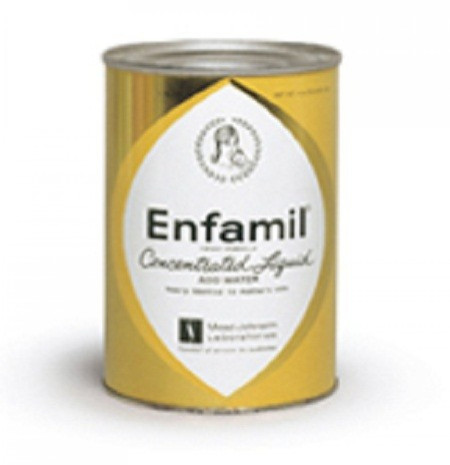Enfamil Recall: Mead Johnson Says New Tests Did Not Detect Cronobacter

Mead Johnson Nutrition Co. (NYSE: MJN) has confirmed the safety of its Enfamil infant formula saying that new tests did not detect the presence of Cronobacter (Enterobacter sakazakii) in the product.
These new results reaffirm the testing conducted before the batch was made available to retailers and consumers. Based on both sets of tests, Mead Johnson can say with confidence that Enfamil Premium Newborn formula, like every infant formula the company produces, is safe, the company said in a statement.
The Glenview, Illinois-based company added it undertook the highly unusual retesting due to continuing misinformation and confusion in the marketplace. Mead Johnson said it conducted a new round of rigorous testing on samples of a batch of Enfamil Premium Newborn powdered formula related to a U.S. Food & Drug Administration (FDA) investigation.
Several retailers, including Wal-Mart Stores, Inc. (NYSE:WMT), have removed Enfamil from their shelves, after the death of an Missouri infant, Avery Cornett, who was fed with the formula and tested positive for a bacterial infection called Cronobacter sakazakii. Cronobacter has been found in milk-based powdered baby formula and is also a relatively common environmental contaminant.
The U.S. FDA and the U.S. Centers for Disease Control are seeking to determine the origin of the Cronobacter involved in the Missouri case and are expected to be testing a variety of possible environmental sources.
The product in question is Enfamil PREMIUM Newborn 12.5 ounce powder with the batch number ZP1K7G on the bottom of the can.
The government has not ordered a recall of this product as it is still investigating into the connection between the illness and the formula and the possible presence of an outside contaminant. The company has shared the results from its two tests with both authorities.
Meanwhile, Mead Johnson said all of its finished infant powdered products are tested for Cronobacter (Enterobacter sakazakii) prior to shipment. If an ingredient or a batch of powdered infant formula product is found to contain Cronobacter, it is rejected and not distributed.
The batch of the product used by the child's family did not show the presence of the bacteria when it was produced and packaged and that has recently been reconfirmed from our batch records, the company added.
In 2006, Mead Johnson recalled its GENTLEASE powdered infant formula, lot number BMJ19 (the product's expiry date was Jul. 1, 2007), after the lot was found to contain metal particles, up to 2.7 millimeter in size.
Shares of Mead Johnson closed 5 percent lower on Friday after it lost 10 percent on Thursday when news first emerged that Wal-Mart was pulling cans of Enfamil Newborn formula off its shelves. They were trading between $55.12 and $76.91 for the past year. However, ratings agency Standard & Poor's said on Friday that its ratings and outlook on the company remained unchanged.
Nevertheless, the agency did warn of a risk of lost sales and damage to brand equity, if a link between the product and the infant's death were to be determined, since the Enfa family of brands accounts for about 79 percent of total sales of the company.
Mead Johnson, formerly a subsidiary of Bristol-Myers Squibb Co. (NYSE:BMY), had completed its initial public offering in February 2009, is geographically diversified. However, approximately one-third of its total company sales occur in the U.S. and infant formula accounts for an estimated 60 percent or more of sales globally.
Although Mead Johnson has not announced any product recalls of this formula, a recall could be costly. We also believe the company could lose sales in the interim if consumers switch brands to another baby formula until the investigation is concluded, S&P said in a statement.
© Copyright IBTimes 2025. All rights reserved.





















